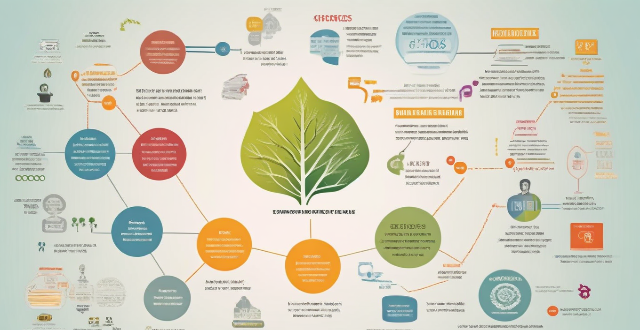The circular economy, an economic system that minimizes waste and maximizes resource use, is crucial for sustainable development. It helps reduce resource depletion, waste, and pollution, while providing economic benefits, fostering innovation, and promoting social equity. By transitioning to a circular economy, we can ensure long-term sustainability and preserve resources for future generations.

The Importance of Circular Economy for Sustainable Development
The concept of a circular economy is crucial for sustainable development due to several reasons. A circular economy is an economic system that aims to minimize waste and maximize the use of resources. It focuses on keeping materials in use for as long as possible, extracting the maximum value from them while in use, then recovering and regenerating products and materials at the end of each service life. This approach contrasts with the traditional linear economy, which follows a "take-make-dispose" model. Here are some key reasons why the circular economy is essential for sustainable development:
Reduction of Resource Depletion
- Limited Natural Resources: The Earth has finite resources, and the linear economy's relentless consumption threatens to exhaust them.
- Efficiency: By reusing and recycling materials, a circular economy reduces the need for new raw materials, slowing down resource depletion.
Reduction of Waste and Pollution
- Waste Management: A circular economy emphasizes waste reduction through smarter design and extended product lifespans.
- Pollution Control: Less waste means less pollution, including greenhouse gas emissions that contribute to climate change.
Economic Benefits
- Cost Savings: Reducing waste and extending product lifecycles can lead to significant cost savings for businesses and consumers.
- Job Creation: The transition to a circular economy creates new job opportunities in areas like recycling, refurbishment, and sustainable design.
Innovation and Design
- Design for Disassembly: Products are designed with recycling and reuse in mind, fostering innovation in eco-friendly design.
- Closing Loops: By designing systems that feed waste back into production, companies create closed loops that reduce environmental impact.
Resilience and Adaptability
- Supply Chain Security: A circular economy reduces dependence on single-source suppliers, making supply chains more resilient to shocks.
- Adaptive Systems: By promoting diversity and flexibility in resource flows, circular economies can adapt better to changing conditions.
Social Equity
- Fair Resource Distribution: A circular economy encourages the equitable distribution of resources by reducing waste and promoting reuse.
- Community Engagement: Local recycling and upcycling initiatives often involve community participation, strengthening social bonds.
Long-term Thinking
- Future Generations: A circular economy considers the needs of future generations by preserving resources and ecosystems.
- Sustainable Growth: It promotes economic growth without compromising the ability of future generations to meet their own needs.
In conclusion, the concept of a circular economy is vital for sustainable development because it addresses multiple dimensions of sustainability: environmental protection, economic efficiency, social equity, and long-term thinking. By transitioning to a circular economy, we can move towards a more resilient, innovative, and prosperous future that respects the limits of our planet's resources.